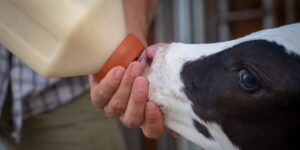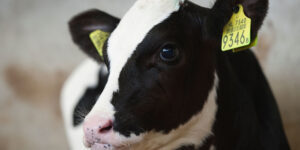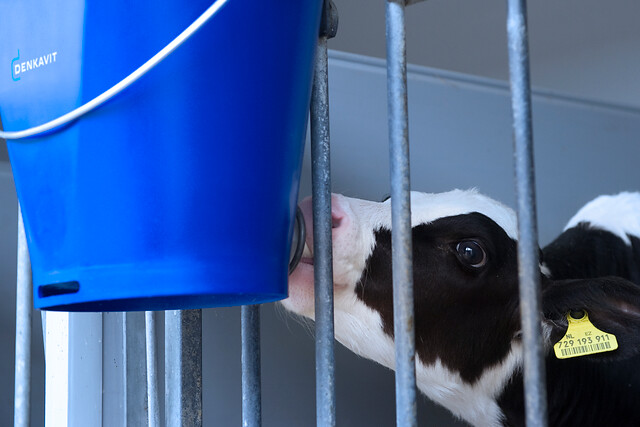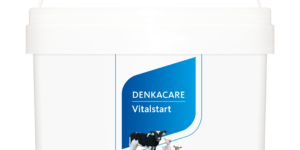The importance of vitamins, minerals and trace elements
Almost everyone knows that vitamins, minerals and trace elements are important. Young animals in particular need extra vitamins and minerals in the first phase of life because they have some deficiencies at birth. In this article, we reveal the key vitamins and minerals, what they do and why they are so important.
Vitamins
Vitamins come from living nature and are produced by plants, animals and humans. They can be classified into fat-soluble and water-soluble vitamins. Fat-soluble vitamins are vitamins A, D, E, and K, which can be stored in the body. Except for vitamin B12, vitamins B and C are water-soluble and therefore cannot be stored in the body.
Vitamin A
Vitamin A provides good vision, and good growth and supports the immune system of the young animal. There are many types of vitamin B and they have numerous functions as a coenzyme in energy metabolism. Vitamins B1, B2, B3, and B5 play an important role in digestion. Vitamin B1 also supports the function of the nervous system. For this reason, it is useful to administer extra B1 to goats with CCN. An important role plays vitamin B12 in building (red) blood cells and, together with vitamin C, is an important player in the prevention of anaemia.
Vitamin C
This vitamin C is known for its role in the absorption of iron and also plays a role in the synthesis of stress hormones. When stressed, animals have a higher risk of vitamin C deficiency. With iron deficiency, it is good to give extra vitamin C to ensure that the iron is better absorbed.
Vitamin D, especially vitamin D3, plays a major role in calcium and phosphorus metabolism, which in turn is important for strong and healthy bones. Additionally, Vitamin D3 has an important function in the immune system, along with vitamin A. Vitamin D also stimulates appetite. Dentalcare Vitalcure and Vitaladd are now enriched with extra vitamin D, for even more vitality in animals.
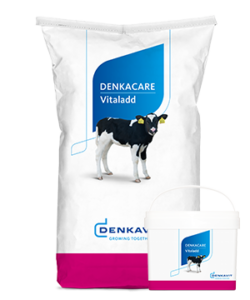
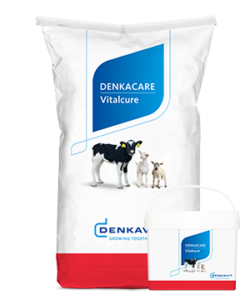
Vitamin E
Vitamin E acts as an antioxidant. Antioxidants protect against free radicals. These are aggressive molecules that can damage cells and tissues. These free radicals are produced daily by the normal metabolism of the animal. A higher number is formed during an inflammatory reaction or at times of stress. Vitamin E also has a positive influence on meat quality thanks to its antioxidant effect. Vitamin E has a synergistic effect with vitamin C and selenium. That is why we have added vitamin E and selenium to our Dosto Caps.
Minerals
Minerals are absorbed by living nature from the soil and water. The minerals the body needs are Magnesium (Mg), Calcium (Ca), Sodium (Na), Chloride (Cl), Phosphorus (P) and Potassium (K). Na, Cl, and K largely determine the fluid balance of the body. That’s why they are important if an animal has diarrhoea. They also play an important role in the acid-base balance of the body. Calcium and magnesium are important for bones, muscle tension and milk production and together with potassium play a major role in cow milk disease. Furthermore, calcium ions are essential for the transmission of signals in nerve cells. Phosphorus is important for the metabolism in the bones and is an important building block of our DNA.
Trace elements
Trace elements are minerals that the body needs in minute quantities and which can be toxic in larger quantities. Essential trace elements for the body are iron (Fe), zinc (Zn), copper (Cu), manganese (Mn), iodine (I) and selenium (Se). Iron is needed for energy management and oxygen transport. Among many other functions, Zinc, copper and manganese are all important instruments for enzymes that act as antioxidants. Iodine is necessary for the proper performance of the thyroid gland, influencing both the metabolic rate and growth rate of the animal. Selenium is an important antioxidant.
Feeding according to the animal’s needs
The vitamins, minerals and trace elements in Denkavit feed and milk are finely adjusted to the needs of the calf or lamb. However, every animal has a different supply of vitamins, minerals and trace elements in its body at birth. To bring this back to normal levels, it is good to add some extra vitamins and minerals for a few days after birth. Thanks to the high concentration of vitamins and minerals in Vitalcure, it helps recharge the ‘battery’ of the animals as quickly as possible. This makes the animals eat more and grow faster. Repeated studies have shown that calves that received 20 grams of Vitalcure per day for the first ten days were on average ±5 kg heavier. Calves feel fitter and therefore absorb more feed. In periods of stress, an animal needs some extra vitamins and minerals, so in such times it is good to use Vitalcure.
Vitaladd to provide the calf
For calves that are not fed calf milk but cow milk, Vitaladd has been developed to provide the calf with sufficient vitamins and minerals.
Cows have been bred and raised to produce an increasing amount of milk. This means the milk is diluted and not all vitamins and minerals are sufficiently present – see the graph below. Vitaladd allows you to both supplements and acidifies the milk, so there are more vitamins and minerals in the milk, bacterial growth is inhibited and the milk curdles better.
The conclusion is that animals can use some extra vitamins, minerals and trace elements during certain periods of their lives. When feeding cow milk, it is good to add a little extra during the entire milk-feeding period.
Contact
If you have any questions about these products, please feel free to contact one of our specialists. Leave the details here and we will contact you!
Contact form - Small
Follow us on LinkedIn & YouTube
Stay informed about our innovations, knowledge and practical tips for calf, piglet, goat and lamb rearing.




